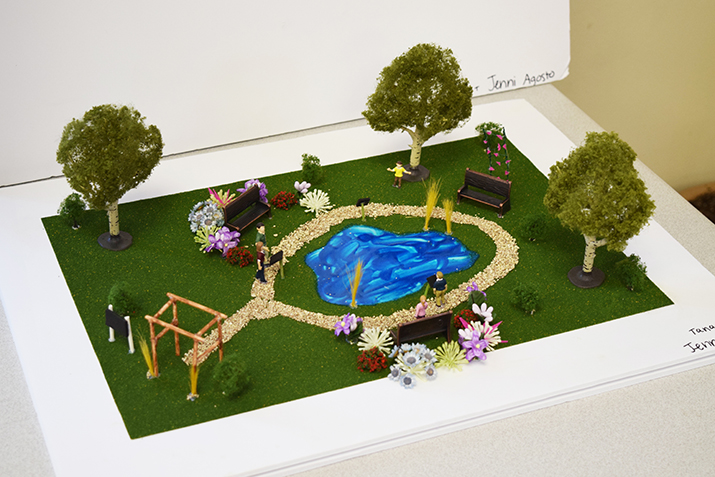The history final is taking on new forms at DelVal
Victor Olear ’19, a student at Delaware Valley University and a self-described history buff, spent 23 years in the Marine Corps. This semester at DelVal, he interviewed a fellow veteran about Bosnia as part of his final project for a course in the University’s history, policy and society program.
“I have six very close friends who took part in operations in Bosnia,” said Olear. “So, I had a very personal interest. We discussed U.S. policy and what his feelings were. We had a lengthy conversation that I turned into an interview source. I then used more traditional research at the library at DelVal.”
Olear is one of 27 students who took Assistant Professor Dr. Shih-chieh (Jay) Su’s “Critical Issues in World History: Genocide in the 20th Century,” course this fall.
Dr. Su doesn’t want history to be boring. He also wants students to leave campus with relevant hands-on experience in public history. So, this semester, he decided to change the final project. Students were allowed to present their research in a way of their choice to make the work more engaging and relevant for them.
“It’s not a term paper, but they still need to do detailed research," said Dr. Su.
Students created projects such as a documentary, a mixed media art piece and educational websites.
“I had good time learning about video editing while learning about my topic,” said Leo Shinohara ’18, a business administration major, who created a short documentary on Rawanda.
While some of the students are history, policy and society majors, many come from other academic programs.
“A horticulture student was able to create a memorial garden design,” said Dr. Su. “Students are using the training from their majors to do the work in public history.”

A memorial garden designed by Jenni Agosto '18 as part of a course in DelVal's history, policy and society program.
A student who wants to work with animals researched a zookeeper’s wife who saved Jews from the Nazis.
“During the Holocaust in Poland they used the zoo as a disguise to rescue survivors,” said Dr. Su. “Students learn their careers have a significant history."
Dr. Su chose to use the same format as National History Day to help better prepare future teachers.
“This course is a practice round for those secondary education teachers," said Dr. Su. "When they go to the job market, they can talk about that experience for social studies positions and show that they are capable of running National History Day.”
Dr. Su is continuing to look for ways to make history engaging while providing students with real-world experience.
Next semester, the program will offer, "Critical Issues in European History (1914-1991),” a course that will take students to Germany. It will be taught by Dr. David Snyder, and the trip will be led by Dr. Snyder and Dr. Jack Schmidt in May 2017
“We want to move away from traditional courses and provide students with a practical way to do history,” said Dr. Su. “We make history interesting and give students real history experience, which is more like what public historians will encounter.”